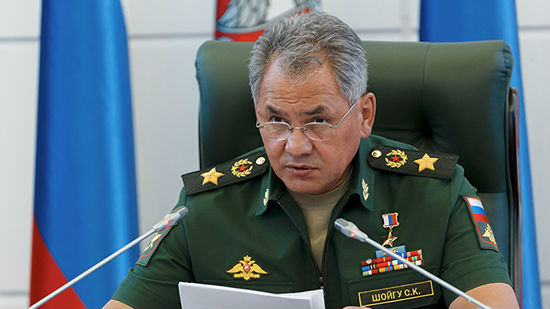Russia Builds Arctic Logistics Capacity

Russia’s Defence Ministry has integrated the resources of 95 civil vessels with a total capacity exceeding one million tons and six seaports for logistic purposes in the Arctic, local media reports.
Defence Minister Sergey Shoigu told the Ministry’s board that the President gave instructions for the formation of a transport system that would guarantee Arctic sea routes would be economically viable.
A consortium including Oboronlogistika, Sovfracht and FESCO has been tasked with developing a unified tariff policy for transport services.
An Historic Voyage
The news coincides with a voyage by the Happy Dover that is carrying two chemical reactors along the Northern Sear Route. The ship set sail from South Korea on July 17, and the reactors are destined for the Pavlodar oil refinery in Kazakhstan via Sabetta, Russia’s new Arctic port on the Yamal Peninsula. The vessel is expected to arrive on August 15.
In Sabetta, the two 600 ton reactors will be reloaded onto barges and transported via the Ob river and the Irtysh river. They are expected to arrive in Pavlodar on August 25.
The voyage is the first of its kind and could lead to more Korean shipping companies using the Northern Sea Route on a regular basis.
Military Capacity
The Defence Ministry board has also discussed the implementation of the Northern Fleet’s 2020 Activity Plan designed this month. The plan aims to enhance protection of Russia’s northern borders. Units of mobile rapid reaction forces are being trained for Far North conditions, and crews of submarines are performing under-ice training tasks.
The Defense Ministry continues building autonomous military bases in the Arctic on Sredny Island, the Franz Josef archipelago, the New Siberian Islands and Wrangel Island. Construction of autonomous military towns is expected to be finished on the Frantz Josef Land Archipelago and New Siberian Islands in 2016.
A network of airfields and monitoring stations are also under construction in the Arctic to improve the nation’s air defenses.
Shoigu has also proposed building several gas storage facilities in the Arctic to support Russian military bases in remote areas.
Environmental Cleanup
As president of the Russian Geographical Society, Shoigu said in June that cleaning up the Arctic was a high priority. The society recently cleaned up the main part of Alexandra Island in Franz Josef Land and clean-up is ongoing on the New Siberian Islands, Novaya Zemlya, on Cape Schmidt, plus several other islands.
“Several large bailing machines have been manufactured by a Defense Ministry contractor. They are used to compress barrels and other scrap for removal from the Arctic zone by return flight. This is difficult and expensive work,” Shoigu said.
